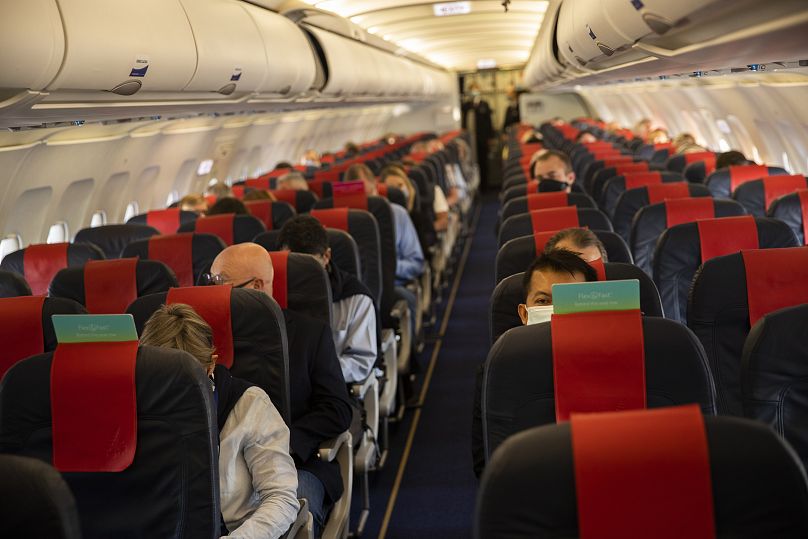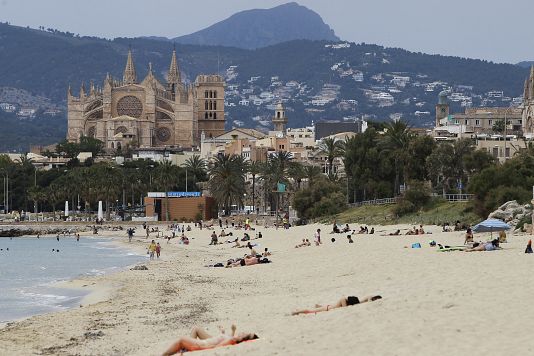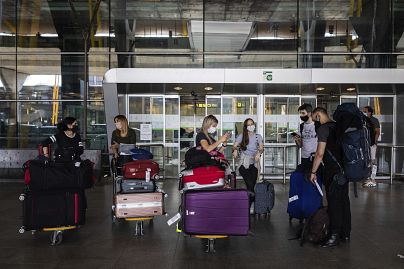The COVID-19 pandemic has dealt a devastating blow to European and international travel, including aviation. Now, as the travel industry re-starts its engines, what challenges does it face in getting travellers on the move again?
As Europe reopens its borders for external tourism to a number of countries on July 1, the bloc is aiming to get visitors pumping cash into the economies of its member states which have been struck by the coronavirus pandemic.
But will people feel safe enough to go on holiday this summer? And how long will it take for the cash-strapped tourism industry to recover?
Europe accounts for half of the world's tourism market in terms of arrivals and has been hard hit by COVID-19. With thousands of flights cancelled and borders closed, airlines have suffered the worst year on record, according to the International Air Transport Association (IATA). The group estimates global losses for air travel could be as much as €100 billion this year.
"We are now dealing with the unknown," said Alessandra Priante, Regional Director for Europe for the World Tourism Organization, during a Euronews debate on June 29.
"It's very clear some of the destinations in Europe especially... cannot do without international tourism. Parts of the Mediterranean cannot do without Americans," she said.
Fear of the unknown
According to Priante, the biggest challenge to bringing back confidence in travelling after lockdown is that many people no longer have trust in the unknown.
"When we're rebuilding confidence, we're really talking about bringing back the trust for the unknown," she said.
"I may be sitting next to someone who is infected. The reality is travel is about trusting the unknown. We want to go where we have never been before," she added.
In May, the European Commission set out an action plan to try and save the summer holiday season by setting out a roadmap of health recommendations for airlines, hotels, campsites, restaurants and bars.
On June 25, the UK announced so-called "air bridges," which would allow travel to some countries with low COVID-19 cases without the need to quarantine for 14 days.
Despite the measures, a Euronews poll showed around 60 per cent of respondents do not feel comfortable travelling this summer.
Tourism takes a hit
"Spain is a world leader in tourism... the sector accounts for 14 per cent of GDP," said Belén González del Val Subirats from the National Tourist Board of Spain. But she said the industry has taken a spectacular hit from the pandemic.
In April 2019, 7 million travellers visited Spain. But in April this year, there were zero international visitors, she said.
"The main concern is safety. We want travellers to be confident. We are ready when you are ready," González del Val Subirats said.
According to her, the country has implemented a recovery plan for the sector, which includes health and safety measures, support for the industry, and a marketing plan.
Trusting airlines
Airlines are also trying to rebuild trust with passengers.
With many flights grounded over the last few months, the sector has seen mass job losses.
But, according to Mikko Turtiainen, vice president of global sales at Finnair, demand is rising since borders started to reopen.
He said it would take close to three years for the company to return to 2019 levels, but said he was "very confident" that the airline would survive the pandemic and the focus now is to make passengers feel safe.
"It has also been said an aircraft is one of the best places to be on... in that it cannot be compared to other forms of transportation. A lot has to do with the filtering systems we have in aircrafts," he said, adding the company also requires passengers and staff wear masks.
Asked during the debate about refunds and vouchers for cancelled flights, he said the company has "never had such a volume of refunds" and it is taking close to eight weeks to pay customers back.
EU law states that in the event of a flight cancellation, passengers have the right to reimbursement for the cost of the ticket within seven days. But some airlines are reportedly not respecting it and offering vouchers instead, citing coronavirus as an unprecedented event.
The future of travel
Months of lockdown may influence the holiday destinations people pick next year, said Turtiainen.
"How is that consumer behaviour going to develop over this period? Where will they want to go? Will they want to go to mass destinations or will they look for an option which will focus more on where there's room to roam?" he asked.
He said while the industry is "to a degree" going into the unknown, he said he believes people are "social animals" and they will want to continue interacting and travel to see friends, family and business partners.
Priante agreed with Turtiainen's comments and added, "you cannot stop the world until you have one of the vaccines."
Watch the full debate by clicking on the video player above.














